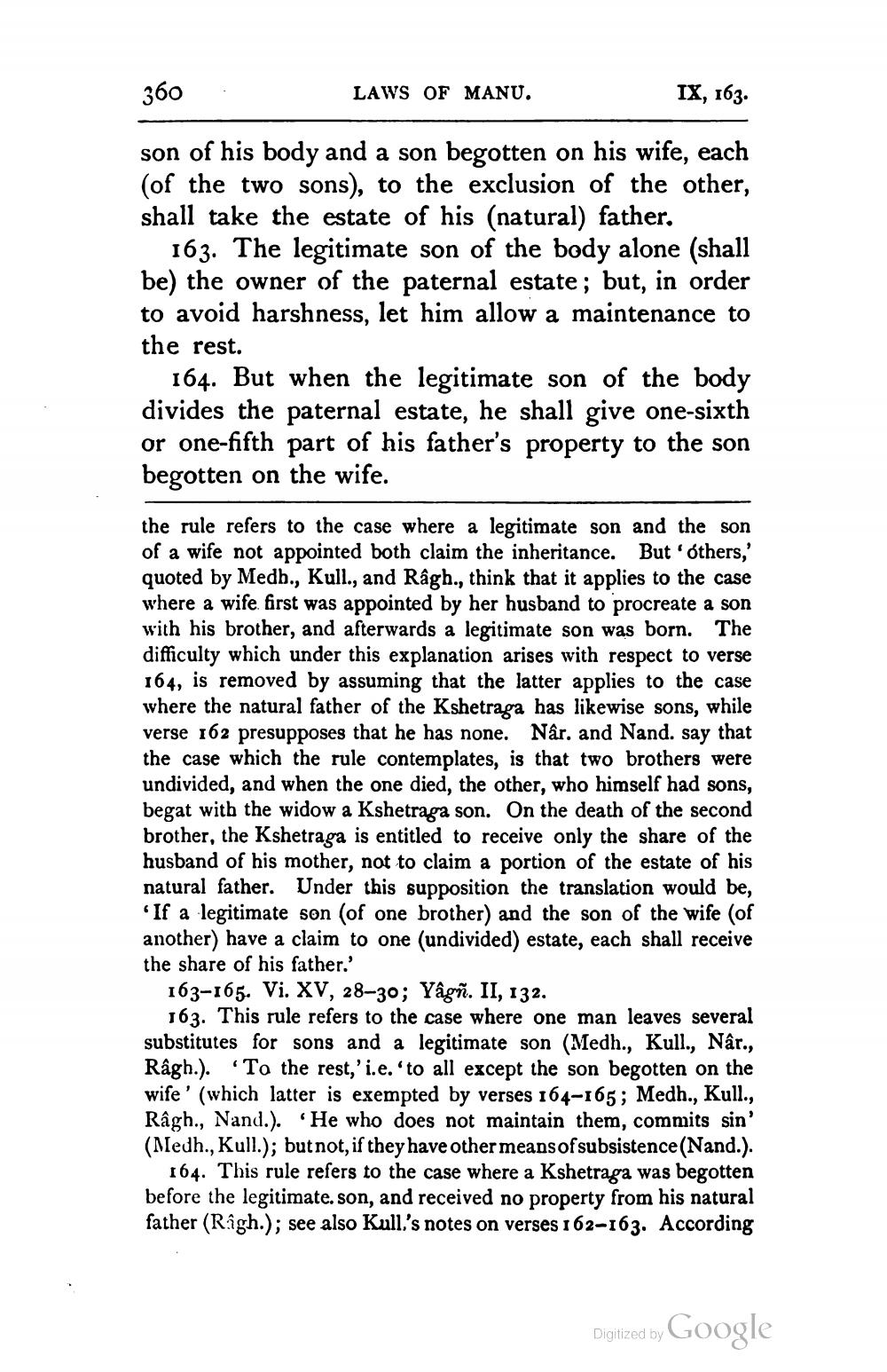________________
360
.
LAWS OF MANU.
IX, 163.
son of his body and a son begotten on his wife, each (of the two sons), to the exclusion of the other, shall take the estate of his (natural) father.
163. The legitimate son of the body alone (shall be) the owner of the paternal estate ; but, in order to avoid harshness, let him allow a maintenance to the rest.
164. But when the legitimate son of the body divides the paternal estate, he shall give one-sixth or one-fifth part of his father's property to the son begotten on the wife.
the rule refers to the case where a legitimate son and the son of a wife not appointed both claim the inheritance. But others,' quoted by Medb., Kull., and Râgh., think that it applies to the case where a wife first was appointed by her husband to procreate a son with his brother, and afterwards a legitimate son was born. The difficulty which under this explanation arises with respect to verse 164, is removed by assuming that the latter applies to the case where the natural father of the Kshetraga has likewise sons, while verse 162 presupposes that he has none. Når. and Nand. say that the case which the rule contemplates, is that two brothers were undivided, and when the one died, the other, who himself had sons, begat with the widow a Kshetraga son. On the death of the second brother, the Kshetraga is entitled to receive only the share of the husband of his mother, not to claim a portion of the estate of his natural father. Under this supposition the translation would be,
If a legitimate son (of one brother) and the son of the wife (of another) have a claim to one (undivided) estate, each shall receive the share of his father.
163–165. Vi. XV, 28-30; Vâgñ. II, 132.
163. This rule refers to the case where one man leaves several substitutes for sons and a legitimate son (Medh., Kull., Nâr., Râgh.). "To the rest,' i.e. to all except the son begotten on the wife' (which latter is exempted by verses 164-165; Medh., Kull., Râgh., Nand.). "He who does not maintain them, commits sin' (Medh., Kull.); but not, if they have other means of subsistence (Nand.).
164. This rule refers to the case where a Kshetraga was begotten before the legitimate. son, and received no property from his natural father (Righ.); see also Kull,'s notes on verses 162-163. According
Digitized by Google




